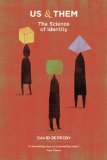Summary | Excerpt | Reviews | Beyond the Book | Readalikes | Genres & Themes | Author Bio

Critics' Opinion:
Readers' Opinion:
First Published:
Oct 2005, 384 pages
Paperback:
Oct 2008, 396 pages
 Book Reviewed by:
Book Reviewed by:
BookBrowse Review Team
Buy This Book
Nonetheless, these two viewpoints - human kinds as categories and
human kinds as entities that happen to be made of people - are looking
at one phenomenon. All human kinds have aspects of both, though the
proportions can change over time. Half a century ago in North America,
"homosexual" was mostly a category for people. Today in many
Western nations, gays and lesbians are seen as an entity that wants,
hopes, decides, and votes. On the other hand, the Norwegian community of
New York City used to be an entity, with neighborhoods, clubs, and
churches that helped organize people's lives. "Norwegians"
made up a thing made of people. Today New York's Norwegians, despite
annual parades, are mostly members of a category for people.
Underlying our myriad human kinds, then, is a fundamental unity. It
is reflected in the way people blur distinctions. Most people don't
blink at the much-used phrase "moderate Hutus," for example,
even though "moderate" and "militant" describe
political convictions and the Hutu are an ethnic group. Yes, it's birth
that makes you a Brahmin, but it takes training to live as one; yes, you
must sign up for army service, but many a son and grandson of military
officers has enlisted because he felt "born to it." You become
an employee of a corporation to make a living, but you can come to feel
a family-like love for the place - like those Apple Computer employees
who were said to bleed in the six colors of the company logo.
In fact, people speak about all human kinds with one language;
something said about one can be said about any other. For example, when
the American political commentator Paul Begala interviewed a prominent
congressman, J. C. Watts, for a television program in 2002, he began:
"Let me say, I'm a liberal. You're a conservative. That's not our
biggest difference. I'm white, you're black, that's not our biggest
difference. I'm a Texas Longhorn and you're an Oklahoma Sooner, and . .
."
"That's our biggest difference," Watts said. "That's
the biggest," Begala replied. "That's bigger than anything
else."
It wasn't, of course. Banter about college football was, in fact, a
demonstration that there was a way in which they were not different.
They were getting in sync, establishing that there is a human kind to
which they both belong: powerful Washington guy. (For men of this tribe,
as the journalist Nicholas Lemann noted, sports joshing is a way to
signal that "membership in a community of important people trumps
the enmity the system forces them to act out.") Notice, though,
what made the conversation possible: the way politics, race, and sports
fandom can be talked about as if they were the same. Why should these
different human kinds, with their different purposes and histories, feel
equivalent? One reason is that they share mental processes. Your ability
to think of people as "German" partly depends on your general
ability to categorize anything- to divide a flood of perceptions into
birds and trees, gears and Gummi bears, hip-hop on the radio and grapes
in a bowl on the table. Pigeonholes for people get some of their
qualities from the mental equipment that makes pigeonholes for
everything.
Categories of all sorts help explain what's happened and predict what
will come next. Human kinds help predict what people will do, and there
too they draw from a general capacity to find causes and patterns.
"Today is cloudy and humid" is information that licenses you
to predict that it might rain. Similarly, "He is a graduate of the
University of Oklahoma" is a piece of information that lets you
predict a stranger likely will follow the Sooners through football
season.
Copyright © 2005 by David Berreby. No part of this book maybe reproduced without written permission from the publisher.





The Funeral Cryer by Wenyan Lu
Debut novelist Wenyan Lu brings us this witty yet profound story about one woman's midlife reawakening in contemporary rural China.
Your guide toexceptional books
BookBrowse seeks out and recommends the best in contemporary fiction and nonfiction—books that not only engage and entertain but also deepen our understanding of ourselves and the world around us.